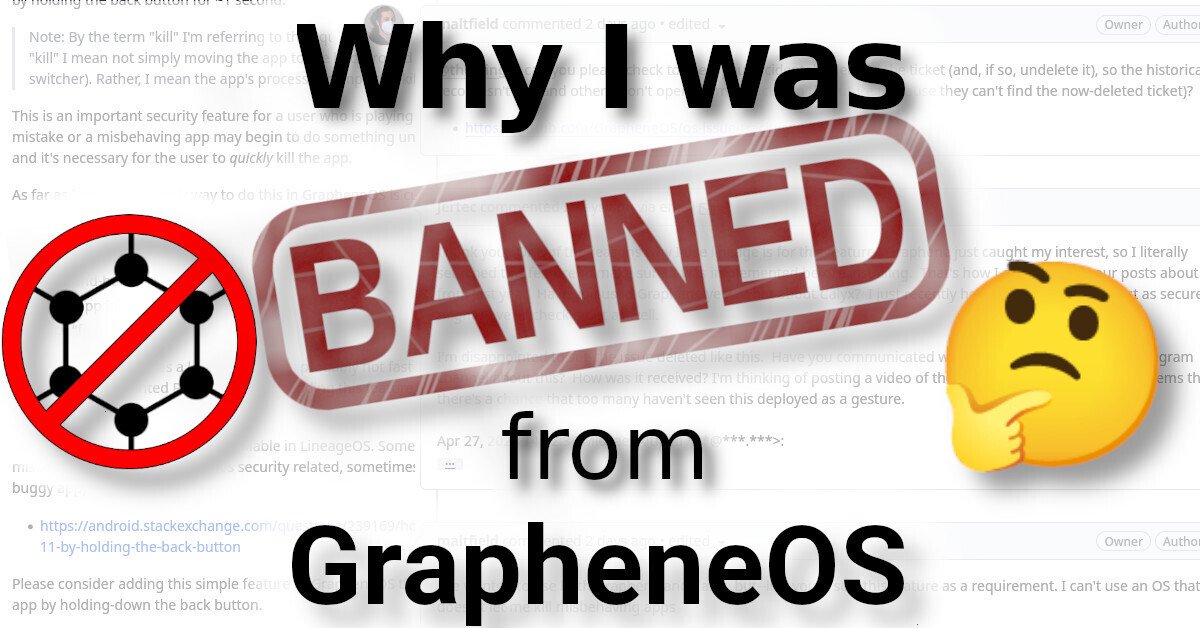Privacy
3810 readers
55 users here now
Welcome! This is a community for all those who are interested in protecting their privacy.
Rules
PS: Don't be a smartass and try to game the system, we'll know if you're breaking the rules when we see it!
- Be civil and no prejudice
- Don't promote big-tech software
- No apathy and defeatism for privacy (i.e. "They already have my data, why bother?")
- No reposting of news that was already posted
- No crypto, blockchain, NFTs
- No Xitter links (if absolutely necessary, use xcancel)
Related communities:
Some of these are only vaguely related, but great communities.
founded 10 months ago
MODERATORS
26
27
28
29
30
31
32
33
34
35
36
37
38
39
40
41
42
43
13
UK Backs Down On Apple Encryption Backdoor—But The Secret Deal Raises New Questions
(www.techdirt.com)
44
45
48
No phone passcode privacy expectation in police station, New Jersey appeals court rules
(images.pexels.com)
46
47
48
49
50


